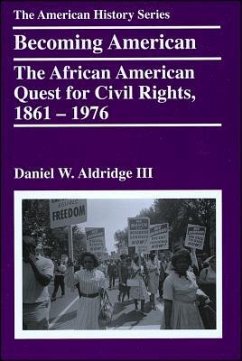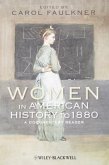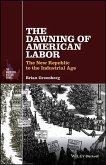Scholars continue to differ over when African Americans' struggle for civil rights began--as well as whether it has actually ended. In the long-awaited volume in our illustrious American History Series, Daniel Aldridge presents a critical and analytical study of the many different leaders and organizations, with special attention to the largely unsung ones whom most student readers never hear about, whose efforts eventually overturned the South's legal and extralegal system of racial discrimination known as Jim Crow, radically transforming society in that blacks fully became part of the American nation. Regardless of one's point of view, no one can dispute that African Americans' long but successful quest for civil rights stands as one of the defining elements in United States history. Becoming American makes ideal reading for courses on the history of the Civil Rights movement as well as a superb supplement to survey courses in African American and United States history.








